- Home
- Michael Wallace
Not Death, But Love (Quill Gordon Mystery Book 3) Page 4
Not Death, But Love (Quill Gordon Mystery Book 3) Read online
Page 4
“There was a fire last night. House on the East Peninsula burned down.”
“We saw it,” said Peter. “We were bringing our boat back to the marina.”
“Then you can probably guess how bad it was. It was Miss London’s house. They found her body inside once the fire was out.” He shook his head and paused. “She was Ned London’s daughter.” The last sentence was spoken with a gravitas and certainty that came from an assumption that nearly everyone in town knew who Ned London was and what it meant to be his daughter.
“I’m sorry,” Gordon said.
“She taught English for 35 years at President Arthur High,” the man in the Stetson continued. “Books were never my strong point, but I learned more from her than almost anyone else. My son and daughter had her, too. Almost everybody in town took a class from her or had a kid who did. You wouldn’t know her, of course, but it’s a real loss for the community.”
Gordon nodded sympathetically and spoke softly.
“Thank you for filling me in,” he said. “Again, I’m sorry.”
He turned to Peter, and as they exchanged a meaningful look, the waitress arrived and set down their meals.
“I guess I have to pay a visit to the sheriff,” Gordon said. “I wonder who’s the sheriff now?”
Twenty minutes later, they were back at Stanhope House, where they had booked separate rooms because cardiac-care nurse Stella Savoy, who had been tending to Peter’s heart (in a non-medical way), had been making vague utterances that she might join him later in the week. Gordon stopped the Cherokee in front of the inn, and they walked briskly up the steps, past the unoccupied reception desk, and up the flight of stairs toward their second-floor rooms. Peter reached his room first and began to let himself in. Gordon kept going to the next room, and as he reached it, noticed that the door was open a crack. He frowned. Had he really been in that much of a hurry to go fishing that morning?
When he pushed the door open, he saw it was worse than that. The room, which he had left neat that morning, looked as if a pair of giant hands had turned it upside down and shaken it. The sheets were off the mattress; the mattress was off the bed; the suitcase was open and its contents scattered helter-skelter on the floor; and every drawer in the chest was pulled out.
He walked several feet to where the contents of his suitcase were scattered on the floor. Lifting a T-shirt at random, he saw his backup travel wallet under it and was surprised, on opening it up, to find that the 300 dollars in twenties and two credit cards he had placed in it before leaving San Francisco, were still there. Either this was no robbery, or the robber was singularly incompetent. Looking around at the devastation of the room, he felt his bile rising as a sense of violation began to take hold. The spell was quickly broken by the sound of a long whistle coming from the door, where Peter was standing, Charlotte London’s manila envelope in his left hand. Peter had put it in his own room the morning before, and Gordon had forgotten to reclaim it.
Peter held the envelope out toward Gordon.
“Do you suppose they were looking for this?”
SHERIFF GENE BALLOU had been in a bad mood for precisely two weeks. The citizens of Forest County, in their infinite wisdom, had given him 48.6 percent of the vote in the June 4 primary election for his fourth term, forcing him into the bother, expense and uncertainty of a November runoff election against a former deputy, who now worked for the Highway Patrol. He had just returned from lunch, and was sitting at his desk, beginning to stew once more in the injustice of the electoral insult, when his secretary appeared at the door to tell him that there was a Mr. Quill Gordon at the counter, who said he had some information about the death of Charlotte London. Ballou’s first inclination was to have his secretary direct Mr. Gordon to the fire department. But he checked himself, figuring that sorting out a problem — even if it wasn’t really his problem — was better than nursing his resentment.
“Send him in,” he said.
Gordon knew none of this as he walked into the office and sized up its occupant. Ballou was wearing khaki slacks, a navy blazer with gold buttons, a blue dress shirt, a string tie with a Northwest totem symbol as its clasp, and, even indoors, an off-white Stetson, immaculately shaped, with a ridge at its top, flanked by a sharp parallel crease on either side. As the sheriff stood to shake hands, Gordon saw that he was seven or eight inches shorter than Gordon’s six-four-plus — small for a lawman these days — with a compact, but not wiry, frame. His handshake was firm, but the eyes lacked the penetrating glare Gordon had often noticed in veterans of law enforcement. Later in the interview, it occurred to him that Ballou had the eyes of prey, not predator. His face was round, pleasant and nondescript, with blue eyes behind wire-rimmed glasses and a crisply trimmed sandy-colored mustache. Following introductions, Gordon presented one of his cards. Ballou gave it a quick look and set it down on his clean desk pad, motioning Gordon to a chair on the other side of the desk. In a firm tenor voice he said:
“Pleased to make your acquaintance, Mr. Gordon. To what do I owe the pleasure?”
“Thank you for your time.” He took a deep breath. “I have some information that may be relevant to the death of Charlotte London.
Ballou gave a nod so slight as to be almost imperceptible, picked up a freshly sharpened pencil to the right of the desk pad, and set it down next to Gordon’s card.
“Very civic minded of you, I’m sure.” He picked the pencil up and set it down again two inches farther from the card. “But do you mind if I ask why you’re coming here? She died in a fire, which was a tragedy, but we have no evidence of a crime at this point, so the fire department is handling the investigation.
“Aren’t you the coroner?”
“In name only. The actual medical work is contracted out to Dr. Brantley in Adams [a town about 30 miles to the south] and the lab is associated with the community college there. He’s promised a report by Friday, and unless there’s a surprise in it, the case stays with the fire department.”
He picked up Gordon’s card again, looked at it more carefully, looked at Gordon for several seconds, and set the card back on the desk pad.
“The name just rang a bell,” he said. “Gordon from San Francisco. Are you by chance related to Judge Gordon?”
“My father.”
“A good man. Good judge, too. He came in here years ago to handle the John Boline trial. The attorney who shot his wife. He ran it fast and fair, and I have no argument with his performance, even though we lost.” He picked up the pencil and contemplated its eraser for several seconds. “Hometown verdict.”
“So I hear.” They sat in silence for the better part of a minute, Gordon controlling his impatience and waiting to see if the sheriff’s knowing his father gave him any kind of edge. Finally Ballou spoke.
“Well, I can’t promise it’ll lead to anything, but let’s hear what you have.”
Gordon exhaled, then began describing, in as much detail as he could remember, his encounter with Charlotte London at the Shotgun Café and the burglary at his room, discovered less than an hour ago. Ballou listened without asking any questions, nodding from time to time. When Gordon finished, the sheriff picked up the pencil and tapped it on the desk pad several times.
“I can certainly understand your being suspicious under the circumstances, but there might be a simple explanation. We’ve had several motel break-ins since the summer season started, and we’re pretty sure we know who’s behind it. It’s just a matter of catching them in the act or with the loot. Now if you’ll give me a list of what was taken … ”
“But that’s the whole point,” Gordon interrupted. “Nothing was taken.”
“Then we probably won’t be able to pin this one on them, but we will catch them sooner or later. Do you have this envelope Miss London gave you?”
Not without misgivings, Gordon handed it across the desk.
“Have you looked at it?”
“Not at all. I brought it straight here.”
“T
hat was the right thing.” Ballou reached for the pencil cup on his desk and extracted from it a letter opener with a handle bearing the logo of the 1993 California Sheriffs’ Association annual convention. He slid the blade under the seal at the top of the manila envelope and began to slit it open. Halfway into the process, the blade caught and ended up ripping the top of the envelope and opening a tear that ran six inches down the front.
Inspector Clouseau, Gordon thought, biting down hard on his lower lip as he tried to suppress the image in his mind.
Nonplussed, the sheriff took two 8½ -by-11 pieces of paper and a floppy disk from what remained of the envelope. The paper was covered with type from a computer printer, and he looked at it briefly before adding it to the collection of items on the desk pad and holding up the disk.
“Mind if I take a look?”
“That’s why I brought it.”
Ballou turned to the left of his desk, where there was an IBM PC, probably about five years old, with a heavy wire leading from it to a printer on a counter against the back wall of the office. He turned on the computer, which gave the impression of being little used, albeit with an impressive collection of coffee stains on its keyboard. As they waited for it to warm up, Gordon checked out the artwork on the walls (which consisted mostly of black and white photographs of the sheriff with other lawmen and politicians) and wondered if he’d ever see the disk again once it went into the computer.
Finally the computer was ready, and after checking the disk to make sure which end went first, Ballou put it in the slot. Gordon leaned back and tried to breathe regularly as Ballou scanned its contents on the screen. In less than half a minute, a frown began to cloud the sheriff’s face, and the frown gained in intensity and severity as he kept looking. Finally, he turned to Gordon.
“I hate to say this, but I think Miss London was pulling your leg.”
“What?”
“There’s nothing here but gibberish. Random letters, numbers and symbols. Here, see for yourself.”
Gordon got up and leaned over the desk so he could see the screen. Ballou was right. Gordon sat down again.
“That makes no sense.”
“I agree, but we’re both seeing the same thing, right?
He ejected the disk, set it on the desk pad, and looked at the adhesive label on it.
“It says ‘Family History,’ and these pages look like a short chapter outline, so it probably goes together.” He put the disk and papers back in the remains of the shredded envelope. “You know, I have a theory that if you have a deep, dark secret that you want to be sure nobody ever hears about, the thing to do with it is put it into a family history. Put it anywhere after about page 20, and no one will ever know.”
He stood to indicate the interview was over, extending the torn envelope with his left hand. When Gordon took the envelope, the sheriff extended his right hand, and Gordon had no choice but to rise and shake it.
“You did the right thing, Mr. Gordon, and I appreciate your coming in. A lot of people wouldn’t. Still, at the end of the day, it doesn’t look as if we have anything here. I have your card, and if anything new comes up, I’ll be sure to give you a call.”
He gave a jerky nod of his head and flashed a slightly crooked smile.
“Thanks for coming in, and have a nice day.”
WALKING OUT OF THE COURTHOUSE into the bright afternoon sun, Gordon knew the rest of the day would be anything but nice. He was convinced that Charlotte London wasn’t playing a practical joke on him, and that the floppy disk was important. Yet he was at a loss to explain the digital mess that had come up on the sheriff’s computer screen.
The Cherokee was parked by the curb, under a large shade tree in front of the library, and when he got to it, he looked around to check if he was being observed. Seeing nothing suspicious, he opened the driver’s side door, lifted the floor mat, and slid the envelope and its contents under it before climbing in.
Peter had expressed a desire to take a nap, so Gordon decided not to go back to the inn yet. After a moment’s thought he concluded that exercise might help him clear his head, and with that in mind, he drove to the high school, turned around in the loop, and parked in front of the outdoor basketball and tennis courts. Reaching behind him, he grabbed a pair of shorts from the back seat and changed into them while sitting at the wheel of the car, a skill he had acquired from going to City League basketball games immediately after work in San Francisco.
Stepping out of the Cherokee, he removed his long-sleeved shirt and tossed it on the front seat, leaving himself clad in shorts, T-shirt and athletic shoes. He opened the rear driver’s side door, took a basketball from behind the front seat, bounced it on the pavement twice to satisfy himself that it was properly inflated, and locked the door. Dribbling the ball with his left hand, he strode purposefully onto the courts, heading for the far basket, where his back would be to the sun. As he reached the three-point line on that court, he stopped, and in one fluid motion, leaped a foot and a half into the air, switched the ball from his left to his right hand, and launched a shot that arced upward to a height of 13 feet, then dropped cleanly through the hoop, clanking noisily against the chain-metal net.
Gordon was under the basket to grab the ball on the first bounce and throw up a left-handed reverse layup. He put too much spin on it, and the ball came out over the front of the rim, where he tapped it back through with his right hand. He took it back to the three-point line and began shooting his way around it, moving a few feet to one side or the other after each shot. He did that several times and had just amassed a streak of five straight baskets when he heard a voice at his right.
“Pretty easy when no one’s guarding you. Want to play a little one-on-one?”
He turned so see a boy in his late teens, six-three, muscular, with a crewcut and a chiseled face lightly touched with acne. Probably a player on the high school team, Gordon thought.
“Sure. You need to warm up a bit?”
“Just give me a couple of minutes.” The kid put out his hand. “Jack Henry.”
“Quill Gordon.”
The kid blinked. “Like the trout fly?” he asked. Gordon nodded. “Good to meet you, Mr. Gordon.”
“Just call me Gordon. My friends do.”
After three or four minutes doing layups and outside shots, Jack declared himself ready. They agreed to play to 12 baskets, with the winner needing to beat the loser by two. Gordon won the free-throw contest for first possession and started by doing a head fake from the free throw line and driving for a layup. The second time, he took the shot instead of faking, and hit it. Before long, he had taken a 9-4 lead. By that time, they had been playing 20 minutes, and the hot sun, reflecting mercilessly from the asphalt, was combining with the mile-high altitude to tire him out.
Younger and more accustomed to the altitude, Jack was fresher, and he was beginning to figure out and better defend Gordon’s moves. The next time the kid got the ball, he dribbled it around the court for two minutes, forcing a tired Gordon to chase him around, then drove past Gordon, when he let up a bit, for a layup. Jack did that twice, and when Gordon decided to leave him alone outside the three-point line, he sank an outside shot, forcing Gordon back into coverage. Gordon made only one more basket, and Jack finally passed him for a 12-10 win. The kid had the mind-set of an assassin, and Gordon was impressed by the maturity and tenacity of his play.
“Good game,” he said, gasping, when it was over. “I have some soda and water in the cooler. Can I get you something?”
“Thank you. You have Coke?”
Gordon nodded and walked slowly to the Cherokee, returning with a Coke and 7-Up. They sat down on the steps to the gymnasium, now in shade.
“I’m guessing you play for the team,” Gordon said.
“Small forward, occasionally guard if somebody gets into foul trouble. I’ll be a senior this year.”
“You played a smart game just now.”
“Actually, I remembered what Coach says w
henever a team comes up from the Valley to play us. He says they’re used to playing at 500 feet elevation, not 5,000, so if we’re within 12 points at the end of the third quarter, we can usually wear ‘em down in the fourth and win it.”
“Smart coach,” Gordon said.
“How about you? You look like you played high school, maybe even college ball.”
“Don Bosco High in San Francisco, then Cal.”
“Scholarship?”
Gordon nodded.
“Figures. You were probably a good three-point shot.”
“They didn’t have the three when I played. Even a half-court shot was two points.”
“Wow.” Gordon felt he had inadvertently placed himself among the dinosaurs.
Gordon took another pull of his 7-Up. “Can I ask you something? My friend and I noticed on the sign as you come into town that the team won a state championship in 1962. Before your time, obviously, but do you know the story?”
Jack nodded. “They show a film and tell us about it each year on the first day of practice. It was a big deal in this town. The only big deal in a long time.”
“I’m guessing you had a couple of pretty good players that year.”
“One for sure. Gary Bowman. He was six-nine, fast and strong. Nobody could take a rebound away from him, and nobody could defend him one-on-one. If they tried, he scored at least 30 points. If they played zone or double-teamed him, he’d pass to another guy for an open shot or a layup. They tried guarding him one-on-one in the championship game. He scored 38 points, and we won, 62-57.”
“And they named the new gym after him for that?”
“Not for that,” Jack said, and he became more serious. “Gary got a scholarship at Oregon State and was a starter sophomore and junior years. After a Saturday afternoon home game junior year, he and another player were driving through Corvallis during a really bad storm — wind and rain. There was a car at the side of the road with its hazard lights on, and Gary told the other guy, who was driving, to pull over so they could go help.” He paused. “That’s what you’re taught to do when you grow up in a small town, where everybody looks out for everybody else.

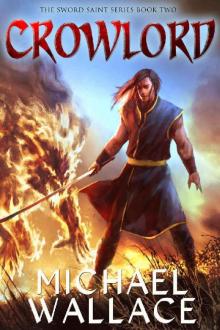 Crowlord (The Sword Saint Series Book 2)
Crowlord (The Sword Saint Series Book 2) Crowlord
Crowlord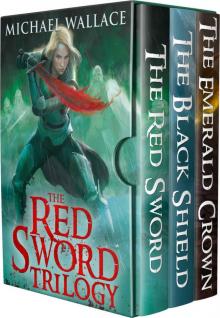 The Red Sword- The Complete Trilogy
The Red Sword- The Complete Trilogy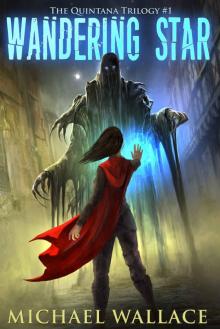 Wandering Star (The Quintana Trilogy Book 1)
Wandering Star (The Quintana Trilogy Book 1)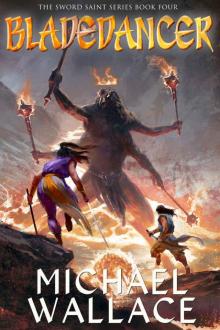 Bladedancer
Bladedancer Sword Saint
Sword Saint The Alliance Trilogy
The Alliance Trilogy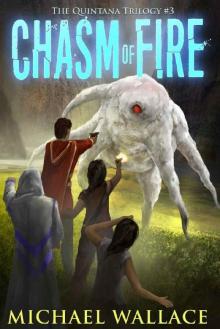 Chasm of Fire
Chasm of Fire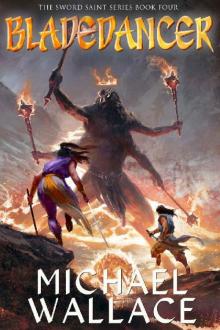 Bladedancer (The Sword Saint Series Book 4)
Bladedancer (The Sword Saint Series Book 4)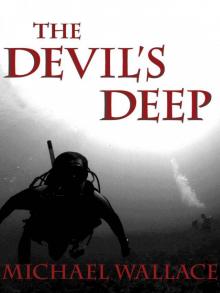 The Devil's Deep
The Devil's Deep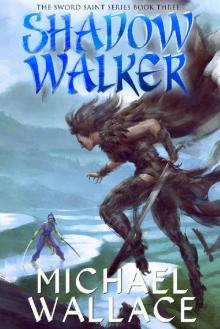 Shadow Walker (The Sword Saint Series Book 3)
Shadow Walker (The Sword Saint Series Book 3) Starship Blackbeard
Starship Blackbeard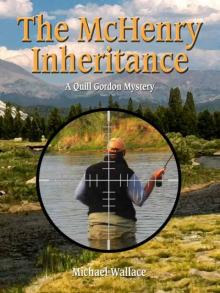 The McHenry Inheritance (Quill Gordon Mystery Book 1)
The McHenry Inheritance (Quill Gordon Mystery Book 1) Sun King (The Void Queen Trilogy Book 3)
Sun King (The Void Queen Trilogy Book 3)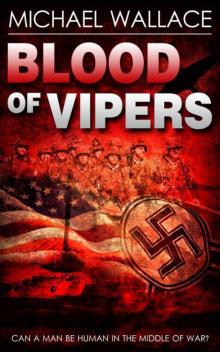 Blood of Vipers
Blood of Vipers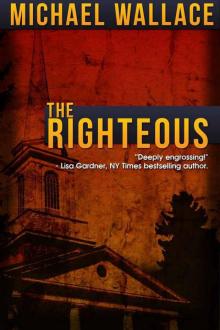 Righteous - 01 - The Righteous
Righteous - 01 - The Righteous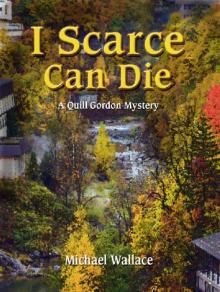 I Scarce Can Die (Quill Gordon Mystery Book 5)
I Scarce Can Die (Quill Gordon Mystery Book 5)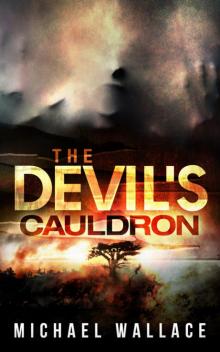 The Devil's Cauldron
The Devil's Cauldron The Wicked (The Righteous)
The Wicked (The Righteous)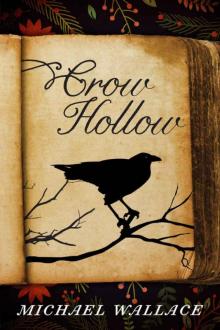 Crow Hollow
Crow Hollow Righteous03 - The Wicked
Righteous03 - The Wicked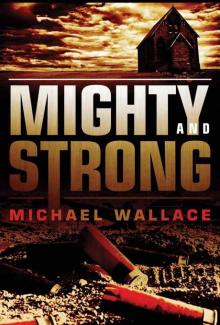 Righteous02 - Mighty and Strong
Righteous02 - Mighty and Strong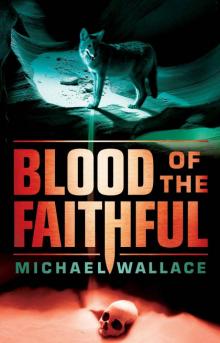 Blood of the Faithful
Blood of the Faithful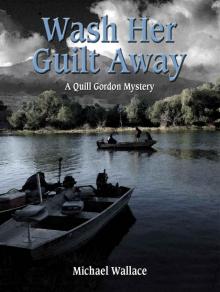 Wash Her Guilt Away (Quill Gordon Mystery Book 2)
Wash Her Guilt Away (Quill Gordon Mystery Book 2) The Kingdom of the Bears
The Kingdom of the Bears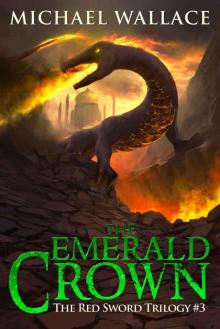 The Emerald Crown (The Red Sword Trilogy Book 3)
The Emerald Crown (The Red Sword Trilogy Book 3)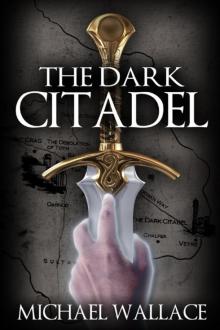 The Dark Citadel
The Dark Citadel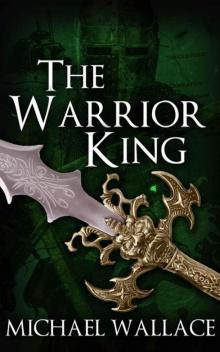 The Warrior King (Book 4)
The Warrior King (Book 4) Rebellion of Stars (Starship Blackbeard Book 4)
Rebellion of Stars (Starship Blackbeard Book 4)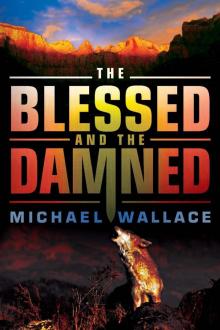 Righteous04 - The Blessed and the Damned
Righteous04 - The Blessed and the Damned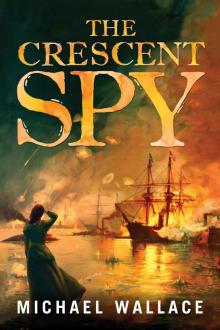 The Crescent Spy
The Crescent Spy Queen of the Void (The Void Queen Trilogy Book 1)
Queen of the Void (The Void Queen Trilogy Book 1)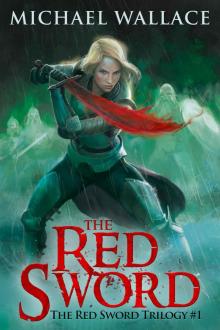 The Red Sword (The Red Sword Trilogy Book 1)
The Red Sword (The Red Sword Trilogy Book 1) The Sentinel (The Sentinel Trilogy Book 1)
The Sentinel (The Sentinel Trilogy Book 1)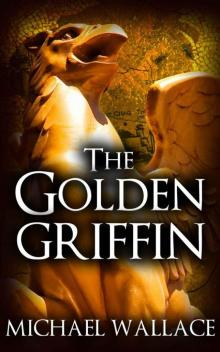 The Golden Griffin (Book 3)
The Golden Griffin (Book 3)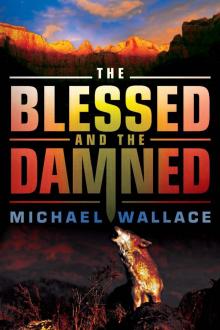 The Blessed and the Damned (Righteous Series #4)
The Blessed and the Damned (Righteous Series #4)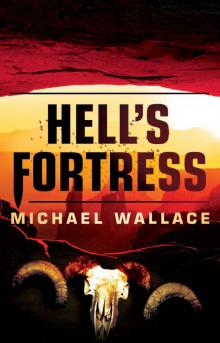 Hell's Fortress
Hell's Fortress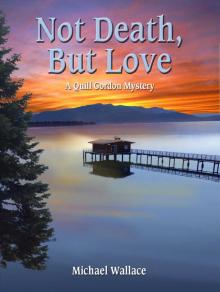 Not Death, But Love (Quill Gordon Mystery Book 3)
Not Death, But Love (Quill Gordon Mystery Book 3) Destroying Angel
Destroying Angel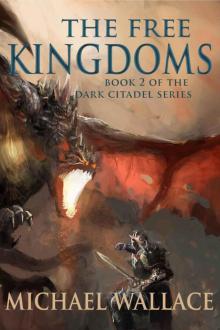 The Free Kingdoms (Book 2)
The Free Kingdoms (Book 2) Dragon Quadrant (The Sentinel Trilogy Book 2)
Dragon Quadrant (The Sentinel Trilogy Book 2) Shattered Sun (The Sentinel Trilogy Book 3)
Shattered Sun (The Sentinel Trilogy Book 3)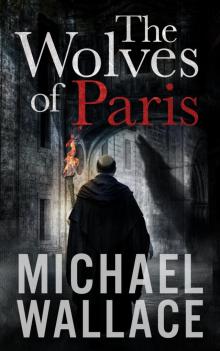 The Wolves of Paris
The Wolves of Paris Lords of Space (Starship Blackbeard Book 2)
Lords of Space (Starship Blackbeard Book 2) Dreadnought (Starship Blackbeard Book 3)
Dreadnought (Starship Blackbeard Book 3)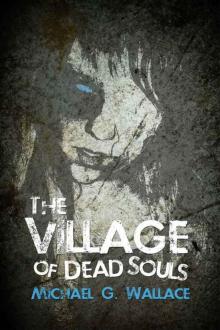 The Village of Dead Souls: A Zombie Novel
The Village of Dead Souls: A Zombie Novel The Black Shield (The Red Sword Book 2)
The Black Shield (The Red Sword Book 2)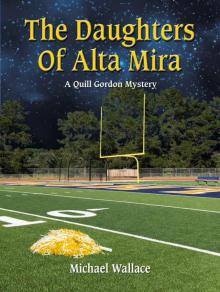 The Daughters Of Alta Mira (Quill Gordon Mystery Book 4)
The Daughters Of Alta Mira (Quill Gordon Mystery Book 4) Mighty and Strong (The Righteous)
Mighty and Strong (The Righteous)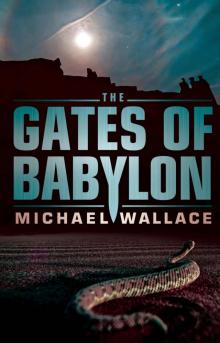 The Gates of Babylon
The Gates of Babylon